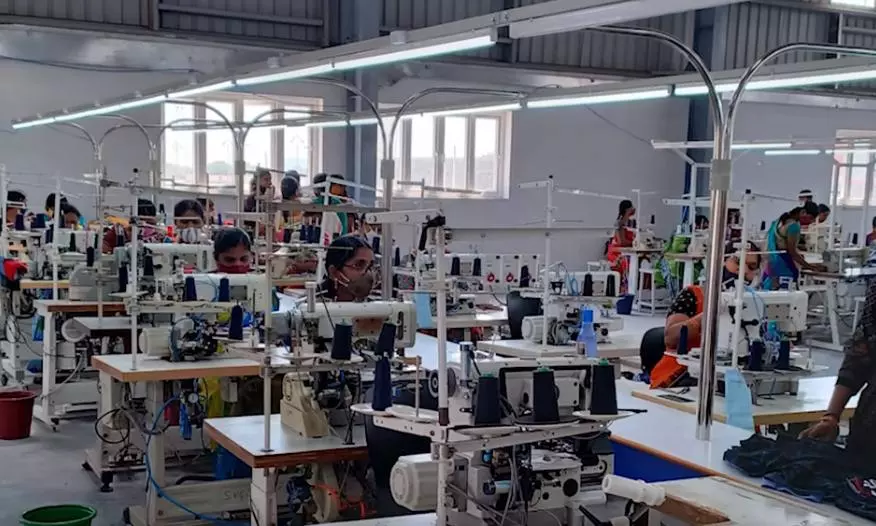Pharma, textiles, services to gain from EU-India FTA
While the EU seeks tariff elimination on over 95 per cent of its exports, India may be willing to open not more than 90 per cent of its market

The EU is seeking lower duty for automobiles, wines, access to the government procurement market and opening up of the services market. (Representational image)
Chennai: As the five-day India-EU trade talks start on March 10, Indian industries like technology, pharmaceuticals, and textiles and services exports, including telecommunications, business services, and transport, stand to gain from a well-structured FTA. The EU is seeking lower duty for automobiles, wines, access to the government procurement market and opening up of the services market.
Key sticking points in the talks include agricultural tariffs, especially on dairy, wine import duties, automobile tariffs, and regulatory barriers affecting labour-intensive goods. India is reluctant to lower auto import duties and is cautious about committing to EU demands on sustainability and labour standards.
While the EU seeks tariff elimination on over 95 per cent of its exports, India may be willing to open not more than 90 per cent of its market.
European winemakers are pushing for greater access as imported wines currently face a 150 per cent tariff and reduce it to 30-40 per cent levels. Both India and the EU may be willing to eliminate tariffs on all textiles and garments. Currently, textile exports face tariffs between 12-16 per cent and are less competitive to those from Bangladesh and Vietnam. An FTA can provide a significant boost to the textile industry.
Europe wants India to cut import duties on completely built-up (CBU) vehicles to 10-20 per cent, down from the current 100-125 per cent. This would significantly lower the price of European luxury cars like BMW, Mercedes-Benz, and Volkswagen, and challenge companies which have set up manufacturing units in India.
The remote online service delivery (Mode 1) restrictions by EU requires Indian companies to establish local offices and maintain high minimum salary thresholds for Indian professionals working in Europe and it will make it tough for Indian IT firms offering services remotely.
European firms are seeking greater access to India’s banking, legal, accountancy, auditing, and financial services sectors. The EU is pushing for access to India’s procurement market for central government and public sector undertakings (PSUs), though the EU keeps its market closed.
The EU is asking India to bypass its GI registration process for certain European products, like Champagne, Roquefort cheese, and Prosciutto di Parma granting them automatic recognition. However, Indian products like Darjeeling Tea, Basmati Rice, and Alphonso Mangoes undergo rigorous scrutiny before receiving GI status in Europe.
One of the biggest hurdles is the EU’s aggressive environmental regulations, particularly the Carbon Border Adjustment Mechanism (CBAM), deforestation rules, and supply chain due diligence laws. These regulations could impose additional costs on Indian exports.
Total trade between the two partners surpassed $190 billion in FY24. India exported $76 billion in goods and $30 billion in services to the EU, while the EU exported $61.5 billion in goods and $23 billion in services to India.
Key sticking points in the talks include agricultural tariffs, especially on dairy, wine import duties, automobile tariffs, and regulatory barriers affecting labour-intensive goods. India is reluctant to lower auto import duties and is cautious about committing to EU demands on sustainability and labour standards.
While the EU seeks tariff elimination on over 95 per cent of its exports, India may be willing to open not more than 90 per cent of its market.
European winemakers are pushing for greater access as imported wines currently face a 150 per cent tariff and reduce it to 30-40 per cent levels. Both India and the EU may be willing to eliminate tariffs on all textiles and garments. Currently, textile exports face tariffs between 12-16 per cent and are less competitive to those from Bangladesh and Vietnam. An FTA can provide a significant boost to the textile industry.
Europe wants India to cut import duties on completely built-up (CBU) vehicles to 10-20 per cent, down from the current 100-125 per cent. This would significantly lower the price of European luxury cars like BMW, Mercedes-Benz, and Volkswagen, and challenge companies which have set up manufacturing units in India.
The remote online service delivery (Mode 1) restrictions by EU requires Indian companies to establish local offices and maintain high minimum salary thresholds for Indian professionals working in Europe and it will make it tough for Indian IT firms offering services remotely.
European firms are seeking greater access to India’s banking, legal, accountancy, auditing, and financial services sectors. The EU is pushing for access to India’s procurement market for central government and public sector undertakings (PSUs), though the EU keeps its market closed.
The EU is asking India to bypass its GI registration process for certain European products, like Champagne, Roquefort cheese, and Prosciutto di Parma granting them automatic recognition. However, Indian products like Darjeeling Tea, Basmati Rice, and Alphonso Mangoes undergo rigorous scrutiny before receiving GI status in Europe.
One of the biggest hurdles is the EU’s aggressive environmental regulations, particularly the Carbon Border Adjustment Mechanism (CBAM), deforestation rules, and supply chain due diligence laws. These regulations could impose additional costs on Indian exports.
Total trade between the two partners surpassed $190 billion in FY24. India exported $76 billion in goods and $30 billion in services to the EU, while the EU exported $61.5 billion in goods and $23 billion in services to India.
( Source : Deccan Chronicle )
Next Story

